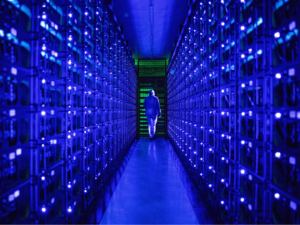Bitcoin mining is a process that sees powerful PCs contend to find a Bitcoin block and acquire awards for doing as such. Miners by and large utilise specific gear, for example, ASIC mining rigs. Going performance can be somewhat more proficient for miners, but on the other hand, is more hazardous since the prizes come less often.
Bitcoin (BTC) utilises the Proof of Work (PoW) agreement algorithm as the premise of its security. As with numerous other digital forms of money, a community of antminer l7 cryptocurrency miners finds squares and adds their next transactions to them, delivering them irreversibly.
It also produces a large amount of new Bitcoin per block, which takes about 10 minutes per square to disclose. This is right now set at 6.25 BTC per block, yet parts approximately like clockwork (210,000 squares), decreasing the quantity of Bitcoin stamped with each newfound square.
This BTC is provided as a motivation to the miner (or miners assuming utilising a mining pool) that found the square.
What amount of time is it required to mine 1 BTC?

Even though it requires 10 minutes to find each square and each square yields a 6.25 BTC award for the miner that effectively found it, it’s critical to comprehend that the whole Bitcoin mining network is contending in this square disclosure process.
This implies that a solitary miner in the whole mining organisation will entirely find the square and since there are possibly a huge number of Bitcoin miners inactivity, the chances of without any assistance finding a square are very low.
Thus, by far most Bitcoin miners cooperate as a feature of a mining pool, consolidating their hash rate to have a superior potential for success of finding a square. Then, at that point, paying little mind to which miner in the pool finds the square, the prizes are dispersed equitably all through the pool.
Thus, a miner that contributes 1% of a pool’s hash rate, will likewise get 1% of the square rewards it builds.
F2Pool is right now the biggest pool by hash rate share, contributing around 26.73 EH/s of the absolute Bitcoin hash rate of 134.6 EH/s. This 19.9% hash rate share implies that around 19.9% of all recently printed BTC are mined by this pool-comparable to 179.1 BTC each outing (of a sum of 900 BTC conveyed to all miners each day).
A singular miner that contributes 1% of the pool’s hash rate (~267 PH/s) would acquire approximately 1.79 BTC each day. This implies a miner would require near 149.2 PH/s of hash rate to mine a normal of 1 BTC each day at current trouble levels.
To place this into point of view, this is what could be compared to running 2,331 of the most recent 64TH/s Antminer S17e ASIC miners, which were delivered in November 2020. This arrangement would almost certainly cost someplace in the request for $1.86 million, accepting a normal unit cost of $799/ea. This would likewise prove fairly testing, since the Antminer S17e is as of now sold out (as of December 2020), and is just accessible at a markup through affiliates.
The Antminer S19 Pro (a more established generation, yet broadly accessible unit) takes a sum of 1,356 days to generate 1 BTC in remuneration when used with a mining pool-that is what would be equivalent to generating 0.00073 BTC every day, or $13.28 per day at ebb and flow costs ($18,200/BTC).
